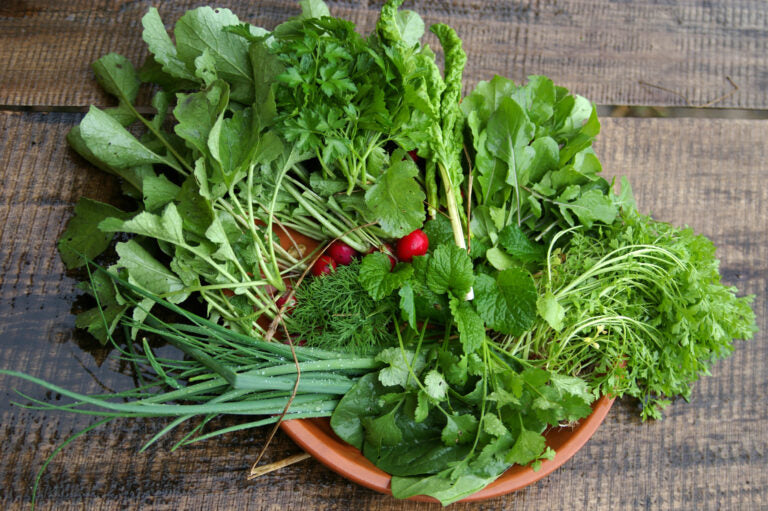Season for young vegetables – what is it and when should you eat it?
Contents:
- What exactly is young vegetables?
- Nutritional values of young vegetables – why is it worth eating them?
- New articles from reliable sources
- How can we use innovations in the kitchen?
The season for baby vegetables is a special time of year, when the first fresh, naturally grown vegetables appear on our tables after the winter break. Baby vegetables such as radishes, lettuce, chives, dill, and young greens are not only a symbol of the changing seasons, but also a source of valuable vitamins and minerals that our bodies especially need after the long winter months. It's worth knowing exactly what baby vegetables are, what health benefits they offer, and when to best incorporate them into your daily diet to fully utilize their health-promoting potential.
What exactly is young vegetables?
Young vegetables are young spring vegetables that only come to market after the winter period, when fresh produce is less available. These include:
- Radish,
- Butter lettuce,
- young carrot ,
- Chives,
- Dill,
- Parsley ,
- lettuce,
- Asparagus,
- Green beans,
- spring onions,
- Spinach leaves,
- and early cucumber and tomato varieties .
They are characterized by a delicate flavor, juiciness, and intense aroma, as well as a high content of vitamins, minerals, and fiber, making them an extremely valuable component of a healthy diet. Young vegetables are grown in greenhouses or under cover so that they reach our tables in early spring and provide the body with the necessary nutrients.
Nutritional values of young vegetables – why is it worth eating them?
Young vegetables are a treasure trove of nutritional value that supports our health on many levels. Young, fresh herbs and vegetables are packed with vitamins and minerals that strengthen our immune system and help prevent lifestyle diseases like heart disease and diabetes. They provide energy, are rich in fiber, which improves digestion, and are low in calories and minimal in simple sugars, making them an ideal food for people who care about their figure. They are the source of:
- Vitamins A and C,
- Folic acid,
- essential minerals such as zinc, potassium, sodium, phosphorus and calcium.
New articles from reliable sources
Regular consumption of nuts can have a positive effect on improving the condition of our skin thanks to their antioxidant content. However, their consumption is especially beneficial when they come from natural, organic plants, meaning they are free from artificial nitrogen fertilizers. Unfortunately, young vegetables grown this way can absorb excessive amounts of nitrate, which is converted into harmful nitrite in the body. These compounds can lead to hormonal and neurological disorders and other serious health problems. To enjoy tasty and aromatic sweets safely, choose products from reliable sources to fully reap their health benefits.
How can we use innovations in the kitchen?
Young vegetables are an excellent addition to many dishes, bringing freshness, lightness, and richness of flavor to our kitchen. One of the easiest ways to use fresh fruit is to add it to salads. Fresh radishes, crisp lettuce, baby carrots, and chives create colorful and healthy combinations that are perfect as an appetizer or light lunch. Pasta is also a great option for sandwiches. This is also one of the easiest and most popular ways to prepare this delicious young spring vegetable. Cucumber, radish, and lettuce leaves add crunch and valuable nutritional value.
Young vegetables are also excellent for soups and broths. Young carrots, parsley, or onions can be the basis for aromatic decoctions packed with vitamins and minerals. Creamy soups like cream of young carrot or asparagus are a great way to introduce new vegetables into your diet in the form of a warm, nutritious meal.
Another idea for using baby vegetables is for light spring snacks and side dishes. We can prepare healthy dips, such as hummus with fresh vegetables or cottage cheese with chives and radishes. Baby vegetables are also perfect for main courses—baby potatoes, beets, or green beans can be baked, steamed, or grilled, making a healthier alternative to traditional meat side dishes for dinner.
Let's not forget desserts and drinks! Fresh cucumbers and young herbs like mint or parsley can enhance the flavor of lemonade or tea, and rhubarb, which is also a vegetable, is a great ingredient in compotes, cakes, and desserts.
Using young vegetables in the kitchen is a way to incorporate fresh, nutritious vegetables into our diet, which not only adds variety to our daily meals but also has a positive effect on our health and overall well-being.
THE PUBLISHER'S CHOICE
Dried plums 1 kg BIOGO
- €7,01
- €7,01
- Unit price
- / per
Dried White Mulberries 500 g ORGANIC
- €5,84
- €5,84
- Unit price
- / per
Almonds 1 kg BIOGO
- €11,69
- €11,69
- Unit price
- / per
Cranberries sweetened with apple juice organic 1 kg BIOGO
- €16,37
- €16,37
- Unit price
- / per
Dried dates 1 kg BIOGO
- €4,21
- €4,21
- Unit price
- / per
Unpeeled buckwheat groats 1 kg BIOGO
- €2,81
- €2,81
- Unit price
- / per
Walnuts 800 g BIOGO
- €8,65
- €8,65
- Unit price
- / per
Peeled sunflower seeds 1 kg BIOGO
- €3,04
- €3,04
- Unit price
- / per
PULLED ORGANIC SUNFLOWER SEEDS 1 KG BIOGO
- €4,44
- €4,44
- Unit price
- / per












































































































































